- Home
- Rachel Caine
Sword and Pen Page 9
Sword and Pen Read online
Page 9
Anit must have sent for him. That was an extraordinary move. Jess said, “It’s not safe—”
“I know that.” Wolfe brushed it impatiently aside. “I am in a den of thieves and smugglers and, yes, I am most uncomfortable that this is what I must do. But I couldn’t allow you to do it without me. Not injured as you are.” He glanced down at Jess’s hands, and Jess followed the look. He hadn’t managed to wash off all the blood. A dirty film of it still circled his forearms. Without saying a word, he dunked them again and scrubbed harder.
Wolfe said, “Whose blood?”
“Glain’s,” Jess said, and his throat threatened to choke off the rest. He forced himself to continue. “She was shot. Sniper.”
He heard the tension in the Scholar’s voice. “Is she—”
“If the last word is alive, then yes. She is,” Jess said. “If you were looking for all right, then no. She is a long road from all right, but she’s being treated now. She took a bullet for me.”
“As is her duty. You’d no doubt take one for her,” Wolfe said, but Jess wasn’t fooled by the dry tone. He saw the worry in the man’s eyes. “What sort of charlatan do they employ here as a Medica?”
“Looks competent enough,” Jess said. “And getting her to a High Garda station was impossible.” His hands finally looked clean. He sat back and shook them dry, then got to his feet. He staggered. Wolfe caught him by both arms and steadied him, and Jess pulled free with a jerk. “I’m fine.”
“You are not. I’m sending you to Santi and telling him to confine you to bed.”
“I can’t rest. Not now. The Medica gave me something to treat it. I’m all right.”
“Bullshit,” Wolfe said crisply. “You breathed poison. And that has consequences. Stop pretending that it doesn’t.”
“I’m not. But don’t pretend that the crisis will wait for me to heal, either.”
“You know, we’re too much alike in how we deny our own limits.”
“I’ll take that as a compliment, Scholar.”
“It wasn’t.” Wolfe glared at him. “I didn’t need your nefarious contacts to discover where the Archivist might be hiding, but we will need them to confront him. Don’t argue with me when I tell you we wait for the cover of darkness before we leave.”
“I won’t,” Jess promised. He was too broken inside to argue. “Where are we going?”
“To the afterworld. The Archivist took me to see his tomb once, in the Necropolis under the city,” Wolfe said. “He built himself an absurdly large model Serapeum there to house his corpse for the afterlife, a pyramid built underground. Ten rooms or so. Big enough to make a temporary command center for him and some of his commanders, at least.”
The Necropolis. Jess steadied a little, because it was a place he’d only heard of, never seen, and he’d once been keen to tour it. The obsession of old Egypt was not death, but life; in death they’d been utterly sure they’d continue to live. Supplies, clothing, possessions . . . all of it went with them to the afterlife. A thousand years ago, they’d also begun building replicas of their homes in the Necropolis—smaller, but with all the familiar touches of their lives—so that on waking in the next world they would have the comforts of their mortal homes to orient them.
Leave it to the Archivist to build himself a massive pyramid instead of a modest miniature home. It reflected the size of his ego, and Jess winced at the wealth he’d looted from the Great Library’s treasury to shower on his arrogance. An emperor in all but name, Jess thought. “He’s living in a cemetery?”
“It’s quiet and private, safely underground, and most avoid it,” Wolfe said. “He’d have stockpiled all he needed there for himself and his loyalists. I’m sure living in a city of bones and corpses won’t bother him as long as it keeps him hidden from High Garda eyes. Out of respect, Santi wouldn’t necessarily think to include it in the door-to-door search.”
“Or he’ll leave it to last,” Jess said.
“Might as well do it for him, then,” Wolfe said. “I’m happy for you to remain here—I want to make that clear. This could be difficult. And dangerous.”
“Since when has that ever stopped me?” Jess managed a smile, somehow. “Or you, Scholar? You’re fresh out of a prison, your third in the last few years. Don’t tell me it didn’t affect you.”
Wolfe’s eyes narrowed, but he didn’t answer immediately. When he did, it was to merely say, “Touché.”
“And Santi would kill me if he knew I’d let you go off on your own without me.”
“No, he’s quite used to me doing as I please, thank you. And we both know you aren’t worried about losing some chance of promotion. Your time in that uniform is temporary, we both know it.”
Jess had grown to recognize that, in the past few months; however much he liked the physicality of the High Garda, his ability to follow orders was—at best—suspect. Yet he had no special calling to be a Scholar, either, or even a librarian, as much as he loved books. He was just surprised Wolfe had seen it, too. “True,” he said aloud. “But we both have reason to find the old man. And Zara.” Zara, once Santi’s lieutenant, had thrown her lot in with the old Archivist. Jess’s goal now was to make her pay for that mistake. “I don’t want you walking out any door into the open. No one can protect you from a sniper with good aim.”
“Not very good aim,” Wolfe said. “He didn’t manage to kill Glain.”
“That reminds me. Why would anyone be aiming for Glain?”
Wolfe’s eyebrows rose and drew together in the same motion. “Perhaps they see her as an important force in the new High Garda,” he said. “Don’t you?”
Jess was immediately ashamed. He hadn’t adjusted himself yet to the idea that his friends, his contemporaries, were no longer ambitious students. They were now achieving. Khalila was rising ever higher. Dario was proving himself an effective diplomat. Thomas had always been a fiercely talented engineer, but now was recognized as something even greater. Morgan was the most talented Obscurist of her generation, and second in power only to the new Obscurist Magnus. Glain was likely to rise to the rank of captain, or even higher.
“You’re right,” he said to Wolfe. “They’re all exceptional. Everyone except me.” He smiled when he said it, just the way Brendan would have done. Self-assured and cynical. “My genius lies elsewhere. Or maybe I have none.”
Wolfe said nothing. Just studied him with that sharp, unsettling focus Jess remembered from what seemed like half a lifetime back now . . . the moment a black-robed Scholar had assessed a confused, nervous gaggle of students fresh off the Alexandria train. It almost felt familiar now, that silent study; it never stopped feeling intrusive.
“I wonder if it was your father who made you think so little of yourself,” Wolfe said, which was not at all what Jess expected. “Having met the man, I would believe it. But, Jess: don’t believe what the demons whisper in the corners of your mind. We all have demons. You are not to be compared against any of the others, or against your own brother. You are yourself. And if I had not seen genius in you, I never would have kept you in the class. I don’t coddle mediocrity.”
Jess felt pressure building behind his eyes, and willed the tears away. No. Not now. Not with him. “You certainly never have before.”
“Then take it for the approval it is.” Wolfe continued to watch him. Jess avoided his gaze and became entranced with the fish again. He heard Wolfe sigh. “Your young friend Anit swears there is a secret exit we can use. We’ll move at dusk. Until then, I want you reclining and resting and using whatever magic elixirs the Medica gave you. Understand?”
He didn’t wait to confirm it, just swept out with his robe billowing behind like a storm cloud. Jess settled on the lounge chair and picked up the volume of Machiavelli again; he opened it to a random page and began to read, or at least run his stare over the cramped, precise handwriting. He understood none of it. Finall
y, he gave up the struggle and put the book down, sat up, and rested his head in both hands. He felt sick, hot, fragile, and he couldn’t afford this now. He wasn’t as good with waiting, alone with his thoughts, as he had been before. He needed to do, not think.
He used the mask again before he left the garden.
He found Anit in conversation with two of her own; both, he was mildly surprised to find, were women. Red Ibrahim seemed to have favored men in his gang of criminals, but perhaps Anit was changing that tune. All three of the women ceased their conversation when he entered, and two of them turned distrustful stares on him.
“I want weapons,” he said.
Anit shook her head. “You think we have better than High Garda issue?”
“High Garda issue will get me killed if I’m seen on the street with them out of uniform,” he said. “By either side. And I doubt your storehouses are any less well stocked than the High Garda’s, Anit.”
She hesitated only a second, then cut a look toward the taller of the two women—Nordic features, blond hair, brown eyes, tanned skin. The woman had her hair cut in a severely short style, which revealed a long scar that looped around the side of her head. At some point, she’d tattooed a striking snake over the scar. You could only see the image when she turned her head and it came clear. Effective. “Katja, take Jess to the armory. Let him have what he wants.”
Katja clearly didn’t favor that order, but she didn’t object, either; she gestured sharply to Jess and walked away down a dark hall, through a doorway, down a flight of steps. Belowground now. The hall they walked smelled of dust and damp stone, and when he touched it the wall felt colder than he expected. An aquifer ran close to here, he thought. That was why Red Ibrahim had chosen this house; he would want a private, protected source of freshwater, too. No doubt this stronghold—modest as it seemed—had a wealth of hidden treasures to recommend it.
At the end of the hallway, behind a heavy locked door, lay one of them. Jess had been to the High Garda armory—well, one of many—so the sight didn’t shock him. Anit didn’t have the same volume of weapons stored here, but the quality was superb. Not High Garda guns, though he spotted some here and there that definitely didn’t belong in private hands; no, these were clearly manufactured by civilian artisans to exacting specifications. He chose a long rifle; it settled warm and perfectly balanced into his hands, and he slung it over his shoulder and chose the ammunition that went into it. Long, elegant bullets. Anit’s weapons weren’t equipped with less lethal rounds. Good. He wouldn’t need them, not for this journey.
“That’s a good weapon,” Katja said. “You’re sure you know how to use it?”
“I’m trained High Garda.”
She sniffed. “As I said.”
He chose a sidearm, more ammunition. A knife. Considered a folding crossbow. “I like your tattoo.”
“I don’t care.”
“You do know I’m a Brightwell, don’t you?”
Katja looked him scornfully up and down. “All I see is a uniform,” she said. “But if Red Anit says you’re to be indulged, then I indulge. To a point.”
Some darker part of him found her attractive. No, not just attractive. She stirred something primal in him, and he realized that since the arena, he’d hardly thought of Morgan at all. Before that fight, he’d worried over her, wondered if they had a future together, hoped they did. But right now, in this moment, he wanted something else. Something bitter and carnal and very far from love.
Katja met his assessing gaze and smiled. It was a cold thing. “Don’t mistake me. I like a good shag as much as the next person,” she said. “But I’m not interested. And if you know what’s good for you, you’ll stop looking at me like a sweet cake you want to devour.”
Jess took a deep breath, let it out, and held her stare for a long few seconds. Not because he was trying in any way to threaten her; he knew that she was not someone he could threaten. Or beat, if it came to a fight. It would be foolish to even try.
But dear God, he wanted her. And he was ashamed and worried by that. “Sorry,” he said. “I’m not sure what I’m doing anymore.”
Katja laughed. It sounded like silk tearing. “Who is, Brightwell? Only fools are sure. The rest of us just do the best we can.”
He picked up the rest of what he thought he might need, including plain, sturdy clothing and a particularly interesting armored jacket, and ignored her as best he could. It didn’t work. She smelled like cinnamon and iron, a peculiar combination that made him want to know how she tasted, too. He hadn’t felt this for anyone but Morgan for a while. What was it Wolfe had said? Don’t believe what the demons whisper in the corners of your mind. His seemed to be particularly loud today.
He nearly flinched when suddenly her voice was at his ear, her breath warm against his skin. Nearly.
“If you’re changing out of that terrible uniform,” Katja said, “I might reconsider what I said.”
He turned to look. She was smiling. It was pure, wicked invitation, and he felt heat rush through his body, and blood rush straight to his groin. Damn her.
It took every scrap of strength he had to leave.
And he knew he’d regret it. Fiercely.
EPHEMERA
Excerpt from the personal diary of Obscurist Morgan Hault. Archived to the Codex under interdict until her death.
I think I’ve been in love with being in love.
Does that even make sense? I care for Jess, of course. He saved me, and I’ve saved him in return; we’re welded together in ways I can’t even begin to explain. But am I in love with him? I keep circling that question, but it remains just out of reach. I’d like to be in love with him. I want it. But . . . what happened in the Colosseum feels like an ending.
What’s happened to us, been done by us and to us . . . it’s changed us both. I am by turns exhausted, elated, terrified, dreadfully bored. Wild swings that hold no peace. And when I think of Jess . . . I realize that I think of him as comfort. But is love comfortable? I don’t know. It feels like something’s missing between us now.
Here I am, scribbling in my journal about love, while the world burns around me . . . but maybe that is what I ought to do. Maybe, in the end, love is all we have left, in peace or in war, to make the surviving worthwhile.
The Obscurist Magnus is calling for me. I must go. Another hard day ahead.
I hope that we survive it.
CHAPTER FIVE
MORGAN
Morgan sipped bitter, cooling tea and fought back a yawn. Her whole body felt on fire with exhaustion, and her eyes were starting to refuse to focus. But the documents that lay before her on the table were starting—ever so slowly—to give up their secrets, and she couldn’t stop now.
Being exhausted could wait.
But if she could just rest her eyes for a moment . . .
“Morgan? Can you make out this part?”
She yanked herself awake, startled, and leaned forward. In doing so she nearly knocked heads with Thomas Schreiber, who sat across from her at the table. “Sorry,” she said, and tried to get her concentration back. Predictably, he’d hardly noticed the near impact, so intent was he on the page in front of them. Thomas wasn’t tired. He put a large but precise finger on a tiny line of faded Greek.
“There,” he said. “Does that talk about the width of the chain?”
“Yes,” she said, “but we already know the width of the chain. Finding the chain isn’t the issue; that’s clearly marked on the current maps. The problem is how to repair the mechanism that winds it. There’s no information here on how to open the casing. No information anywhere, in any of the records.”
“True. But there is this.” He moved his finger farther down the page to a string of symbols she’d read and dismissed.
“It doesn’t even make sense,” she said. “Unless my ancient Greek’s worse than yours . . . ?”
“Not worse. Just different,” he said. “This is shorthand among engineers. It may not make sense to anyone outside of the field, but we still use some of these notations. I believe these are instructions for opening the casing, but it can’t be done by one person, or even two; it’s at the bottom of the harbor, for one thing. The ancients must have had automata to do this task; do the Obscurists have any record of them? The Artifex engineers must have partnered with Obscurists to make and maintain them.”
Morgan’s weary frustration turned to a sweet thrill of realization. “Yes! Or, at least, it’s discussed as possible in some of the texts; I don’t remember any of them describing the exact automaton used, only that it functioned underwater. It would need the two of us working closely together. I would have to bond you directly to the automaton; you’d see through its eyes and use its hands as your own. But I’m not so certain that any automata we have in Alexandria now can do that sort of fine mechanical task.”
“Scribes?” he suggested. The mechanical Scribes were able to write, so it seemed a logical enough question, but Morgan shook her head. She held up her hands and flexed her fingers.
“The Scribes’ hands are made to hold a pen and reduce movement,” she said, “to facilitate speed in writing. They don’t even have functional legs to stand on. But . . .” She hesitated. It seemed faintly sacrilegious to suggest. “The hands of many of the god automata are fully articulated. They’d have the strength necessary and be able to move in the ways we’d need. What do you think?”
“I think there could be nothing more appropriate than to press one of our gods into the service of saving this city,” he said. “Which one?”
Morgan considered it carefully. None of the automata she knew of were built to survive water for long, but it didn’t have to be a particularly long job. Or so she hoped. An hour, no more. “One of the larger ones,” she said, “in case we need leverage. This mechanism is bound to be very rusty.”

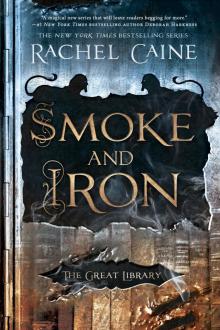 Smoke and Iron
Smoke and Iron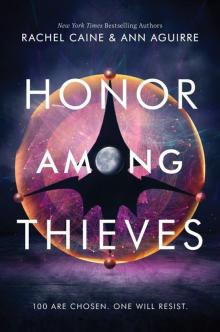 Honor Among Thieves
Honor Among Thieves Paper and Fire
Paper and Fire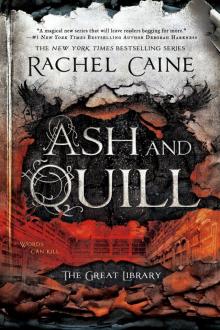 Ash and Quill
Ash and Quill Wolfhunter River (Stillhouse Lake Book 3)
Wolfhunter River (Stillhouse Lake Book 3) Undone
Undone Glass Houses
Glass Houses Prince of Shadows
Prince of Shadows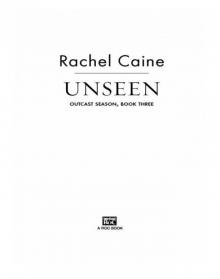 Unseen
Unseen Midnight at Mart's
Midnight at Mart's The Dead Girls Dance
The Dead Girls Dance Last Breath
Last Breath Stillhouse Lake
Stillhouse Lake Daylighters
Daylighters Midnight Alley
Midnight Alley Black Dawn
Black Dawn Fall of Night
Fall of Night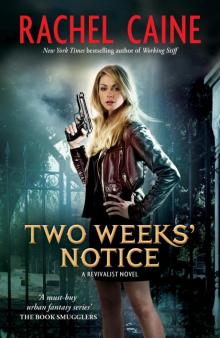 Two Weeks Notice
Two Weeks Notice Bitter Blood
Bitter Blood Carpe Corpus
Carpe Corpus Kiss of Death
Kiss of Death Ghost Town
Ghost Town Ill Wind
Ill Wind Fade Out
Fade Out Total Eclipse
Total Eclipse Honor Lost
Honor Lost Thin Air
Thin Air Black Corner
Black Corner Firestorm
Firestorm Bite Club
Bite Club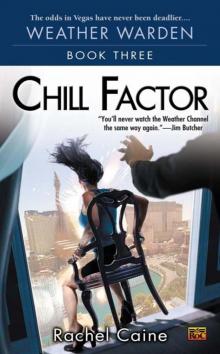 Chill Factor
Chill Factor Windfall
Windfall Oasis
Oasis Devils Bargain
Devils Bargain Terminated
Terminated Feast of Fools
Feast of Fools Lord of Misrule
Lord of Misrule Devils Due
Devils Due Ladies' Night
Ladies' Night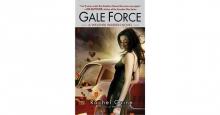 Gale Force
Gale Force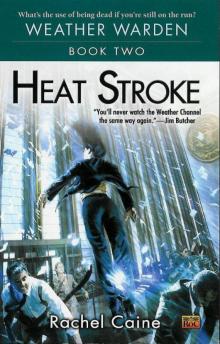 Heat Stroke
Heat Stroke Killman Creek
Killman Creek Sword and Pen
Sword and Pen Cape Storm
Cape Storm Unbroken
Unbroken Windfall tww-4
Windfall tww-4 Heartbreak Bay (Stillhouse Lake)
Heartbreak Bay (Stillhouse Lake) Daylighters: The Morganville Vampires
Daylighters: The Morganville Vampires Duty
Duty Honor Bound
Honor Bound Unseen os-3
Unseen os-3 Firestorm tww-5
Firestorm tww-5 Blue Crush
Blue Crush Devil s Bargain
Devil s Bargain Prince of Shadows: A Novel of Romeo and Juliet
Prince of Shadows: A Novel of Romeo and Juliet Bite Club mv-10
Bite Club mv-10 Terminated tr-3
Terminated tr-3 The Morganville Vampires 14 - Fall of Night
The Morganville Vampires 14 - Fall of Night Bitter Blood tmv-13
Bitter Blood tmv-13 Falling for Grace
Falling for Grace The True Blood of Martyrs
The True Blood of Martyrs Fall of Night (The Morganville Vampires)
Fall of Night (The Morganville Vampires) Devil's Bargain rld-1
Devil's Bargain rld-1 The Morganville Vampires (Books 1-8)
The Morganville Vampires (Books 1-8)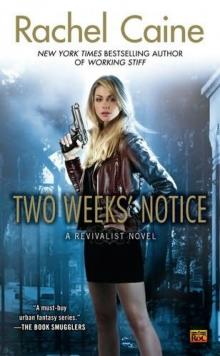 Two Weeks' Notice tr-2
Two Weeks' Notice tr-2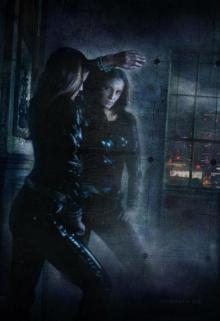 An Affinity for Blue
An Affinity for Blue Caine, Rachel-Short Stories
Caine, Rachel-Short Stories Kiss of Death tmv-8
Kiss of Death tmv-8 WITCHGRAVE
WITCHGRAVE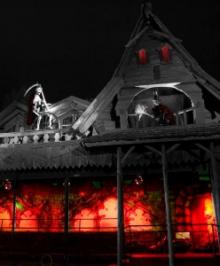 Dark Rides
Dark Rides The Morganville Vampires
The Morganville Vampires Killman Creek (Stillhouse Lake Series Book 2)
Killman Creek (Stillhouse Lake Series Book 2) Midnight Bites
Midnight Bites Line of Sight
Line of Sight![Morganville Vampires [01] Glass Houses Read online](http://i1.bookreadfree.com/i1/03/30/morganville_vampires_01_glass_houses_preview.jpg) Morganville Vampires [01] Glass Houses
Morganville Vampires [01] Glass Houses Black Dawn tmv-12
Black Dawn tmv-12 Midnight at Mart ww-103
Midnight at Mart ww-103 Feast of Fools tmv-4
Feast of Fools tmv-4 Ill Wind tww-1
Ill Wind tww-1 Devil's Due rld-2
Devil's Due rld-2 Black Dawn: The Morganville Vampires
Black Dawn: The Morganville Vampires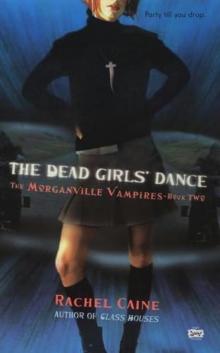 Dead Girls' Dance tmv-2
Dead Girls' Dance tmv-2 Minute Maids
Minute Maids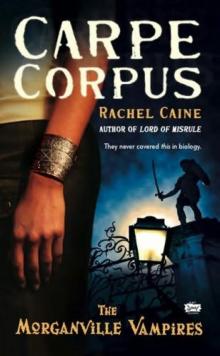 Carpe Corpus tmv-6
Carpe Corpus tmv-6 Total Eclipse tww-9
Total Eclipse tww-9 Ghost Town mv-9
Ghost Town mv-9 Lord of Misrule tmv-5
Lord of Misrule tmv-5 Faith Like Wine
Faith Like Wine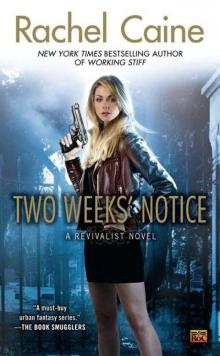 Two Weeks' Notice: A Revivalist Novel
Two Weeks' Notice: A Revivalist Novel Daylighters tmv-15
Daylighters tmv-15 Stamps, Vamps & Tramps (A Three Little Words Anthology)
Stamps, Vamps & Tramps (A Three Little Words Anthology) Unbroken os-4
Unbroken os-4 Unknown os-2
Unknown os-2 4 - Unbroken
4 - Unbroken Cape Storm tww-8
Cape Storm tww-8 Last Breath tmv-11
Last Breath tmv-11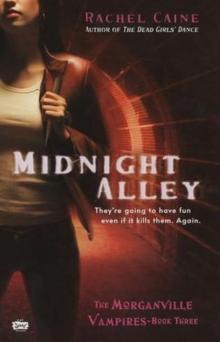 Midnight Alley tmv-3
Midnight Alley tmv-3 Glass Houses tmv-1
Glass Houses tmv-1 Fade Out tmv-7
Fade Out tmv-7 Fall of Night tmv-14
Fall of Night tmv-14 Godfellas
Godfellas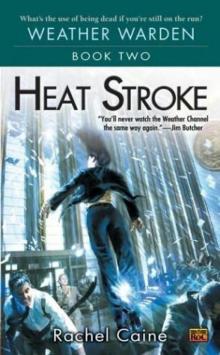 Heat Stroke ww-2
Heat Stroke ww-2 Carniepunk
Carniepunk Oasis ww-102
Oasis ww-102 Gale Force tww-7
Gale Force tww-7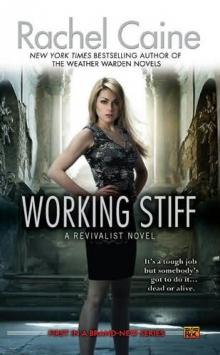 Working Stiff tr-1
Working Stiff tr-1